-
A tireless builder, the deject is in short a stray. He is on a journey, during the night, the end of which keeps receding. He has a sense of danger, of the loss that the pseudo-object attracting him represents for him, but he cannot help taking the risk at the very moment he sets himself apart. And the more he strays, the more he is saved.
–Julia Kristeva, Powers of Horror
Watching The Tempest being performed in Delaware Park last week, I was reminded again of how Shakespeare puts his most sublime passage — perhaps the most sublime in all of his plays — into the mouth of his most abject character.
-
Be not afeard; the isle is full of noises,
sounds and sweet airs that give delight and hurt not.
Sometimes a thousand twangling instruments
will hum about mine ears; and sometimes voices,
That, if I then had waked after long sleep,
will make me sleep again; and then, in dreaming,
the clouds, methought, would open and show riches
ready to drop upon me: that, when I waked,
I cried to dream again.–3.2
In Tempest-like language, Kristeva describes the abject further: “The time of abjection is double: a time of oblivion and thunder, of veiled infinity and the moment when revelation bursts forth.” I can’t help but wonder if Chaucer understood the same thing: The Pardoner’s Tale, often considered the “best” of the Canterbury Tales, is undoubtedly the most varied in style, the most daring in rhetorical strategy. In other words, the Pardoner, certainly the most abject of Chaucer’s characters, speaks with the most eloquence, the most invention, perhaps the most of the “sublime.” There is a logic here that Kristeva touches on, I think; without formulating too simple and easy an equation, one might say that the vanishing point of abjection becomes the place from which language has the most provocative, even beautiful, things to say.
Further — and I must include the caveat that these thoughts are provisional, speculative, etc. — I have to wonder if it’s not something of this that both attracts and repels readers of Flarf. For Flarf, it seems to me, follows this elusive logic to a strange conclusion: the abject of language itself is given voice. The dull, dense, flotsam and jetsam of language, careless, disembodied scribblings culled from blogs and anonymous sites, mingle unabashedly with occasional gems of more polished, honest, sincere writing — all of it stripped bare of authorship and presented in such a way that the sublime, every so often and seemingly at random, speaks not from the mouth of an abject character but from abjection itself. (I’m thinking here, again, of Gary Sullivan’s play PPL in a Depot, when at the end of lots of banal chatter a character stands up and recites a heartfelt elegy for Allen Ginsberg… this, too, is perhaps why Flarf often works best as performance, best of all as performed drama.)
It’s not enough to assert, as Stan Apps does in his review of this and other Sullivan plays, that “With the internet, for the first time in history the self-expressive efforts of millions of our fellow citizens are fully searchable and available for convenient copy-paste; in other words, the need for writers to painstakingly approximate ‘real’ speech is finally totally obsolete.” The web clearly does something far more complicated and weird than simply taking snapshots of language for anyone to dip into and use. I’m reminded of Foucault’s writing on “the absence of an oeuvre” in his preface to History of Madness:
- The plenitude of history is only possible in the space, both empty and peopled at the same time, of all the words without language that appear to anyone who lends an ear, as a dull sound from beneath history, the obstinate murmur of a language talking to itself — without any speaking subject and without an interlocutor, wrapped up in itself, with a lump in its throat, collapsing before it ever reaches any formulation and returning without a fuss to the silence that it never shook off. The charred root of meaning.
Having now toggled from Kristeva to Shakespeare to Foucault, uneasily retrofitting some of these decontextualized concepts to thoughts on Flarf, I nevertheless think they at least have the potential to begin a conversation on this subject. In other words, clearly Foucault is not anticipating anything remotely like the Internet, but he is describing a condition of language that reflects or rests adjacent to what we find happening to words filtered through the screen.
For the Internet is where language has gone to die. An endless graveyard of smashed signifiers left empty to be endlessly used, endlessly interchanged. Flarfists wade into this cave — bravely or foolishly, depending on your point of view — Cassandras in a coal mine who incessantly sing of this death. “Whatever,” the key term in Sharon Mesmer‘s “The Swiss Just Do Whatever,” is the perfect word for Flarf. Yet here, as in the poem, bereft of the seething irony of Kurt Cobain‘s “Oh well, whatever, nevermind,” it is simply an invitation to do whatever, say whatever, because it doesn’t matter whether the Swiss are “masturbating their doink-doinks” — or whatever.
Likewise, Nada Gordon‘s “Unicorn Believers Don’t Declare Fatwas.” Here Hitler becomes innocent as a unicorn, a unicorn sinister as Hitler. “Hitler as a great man. / Hitler… mm yeah, Hitler, Hitler, Hitler …” And later: “That unicorn is worse than Hitler.” This kind of radical interchangeability of terms seems to signal a promise broken deep inside language, at the level of “symbolic efficiency,” to borrow a concept that Dale Smith touted on his blog some time ago. Flarf displays this break over and over again, showing us just where language has begun to turn on itself, loathe itself, and in the process both know and un-know itself in the most radical way. Whether you think this is a good thing, a bad thing, or simply a linguistic reality that must be acknowledged and dealt with in poetry, probably goes a long ways towards explaining your attitude towards Flarf.
But not all of it works that way. Jordan Davis‘s poems at the beginning of the Con-po section are stunning examples of Flarf turned against its own tendencies, to good effect. These are not the usual vast wordscapes; they do not appear to be “repurposed, regurgitated, and reframed from the great mass of free-floating language out there just begging to be turned into poetry,” as Kenny Goldsmith asserts; they are not “hilarious.” Succinct and witty, even tender, the short pieces — especially the first and last one — eschew verbal excess for the epigrammatic.
-
TURTLES GENERATE POEMS
No wonder they move so slowly–
Somebody in there is
Trying to write.…
POEM FOR A SIXTH WEDDING
You know a lot better than I do
What you’re doing
What I like best about these pieces is that they work just fine as poems in themselves, without the context and punchline of knowing they’re Flarf — which makes that punchline all the more effective. (This points towards my main source of frustration with this issue, and the Con-po feature: why the need to segregate all the Flarf/Con writing from the rest of the issue, and segregate Flarf from Con within the feature? Wouldn’t it have been far more interesting to allow a more open discourse between, say, K. Silem Mohammed‘s “Poems About Trees” and some of the nature-oriented “straight” poems in the first part of the book, or the Flarf poems and Caroline Bergvall‘s “The Not Tale (Funeral),” which operates along somewhat similar lines?)
Davis’s short poems read like the brief witticisms of Richard Brautigan, not exactly poems but not not poems, either. (Likewise, they seem far too short for the excessive quotation of Flarf, but they’re not not Flarf.) This seems like a good place to stop, for now. Perhaps I’ll write some more about this — I’ve not yet gotten to the Conceptual Writing, or the interesting back matter behind the feature section, which also deserves mention.
Just to close with one of Kenny’s comments from a recent blog post (which is a lot more lucid and inviting than anything he wrote in the Poetry intro):
-
As I’ve said before on the Poetry Foundation, with the rise of the web, writing has met its photography. By that I mean, writing has encountered a situation similar to what happened to painting upon the invention of photography, a technology so much better at doing what the art form had been trying to do, that in order to survive, the field had to alter its course radically. If photography was striving for sharp focus, painting was forced to go soft, hence Impressionism. Faced with an unprecedented amount of digital available text, writing needs to redefine itself in order to adapt to the new environment of textual abundance.
When we look at our text-based world today, we see the perfect environment in which writing can thrive. Similarly, if we look at what happened when painting met photography, we’ll find that it was the perfect analog to analog correspondence, for nowhere lurking beneath the surface of either painting, photography or film was a speck of language. Instead, it was indexical — image to image — thus setting the stage for an imagistic revolution. Today, digital media has set the stage for a literary revolution. In 1974, Peter Büger was still able to make the claim that “[B]ecause the advent of photography makes possible the precise mechanical reproduction of reality, the mimetic function of the fine arts withers. But the limits of this explanatory model become clear when one calls to mind that it cannot be transferred to literature. For in literature, there is no technical innovation that could have produced an effect comparable to that of photography in the fine arts.” Now there is.
Again, whether one accepts and agrees with this assessment of the impact of the web on writing-based arts goes a long ways towards explaining one’s response to the new or newish forms espoused by Goldsmith, Flarf et al. To them, writers still straining to “create” appear to be artistic dinosaurs, wearing Zoot suits and making perspective drawings of staircases while the rest of the class is off having fun and breaking new ground. Needless to say, I would complicate and question that picture quite a bit.

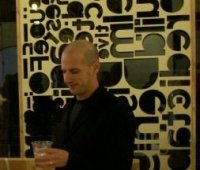
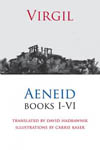
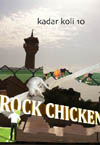
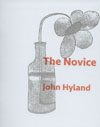
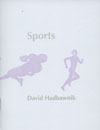
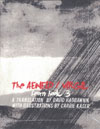
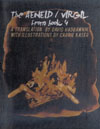
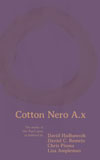
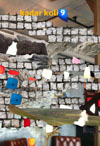
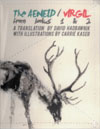
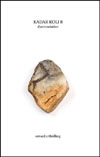
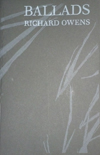
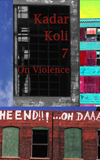
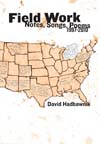
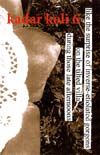
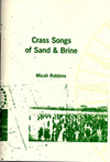
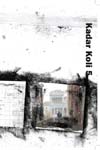
Hi David,
This thoughtful post is onto part of that something that’s kept me on the flarf wagon lo these many years. Don’t know if you have “Musee Mechanique,” which I tend to think of as a kind of repository for the sort of effects you describe here. The hoopla around flarf isn’t always adequate to the variety of tones, effects, feelings, and moods the poems themselves explore; glad for your efforts to expand the discussion.
I’m feeling very old fashioned reading all this… out of date? Perhaps I’m so behind the times I need some sort of absurd update– I guess, my question is… As a writer, don’t you want to express something, to make something as clear as you can, to share something, to record? I’ve never really understood the appeal of writing something that has no direct relation to yourself. And isn’t that sort of the appeal of reading too?? That you feel you are in discussion with others?
Of course, we pass on– sort of like Spicer’s barnacles on language– perhaps making our intention valueless if we’re so lucky as to be read. But should that matter in the process of creation?
That’s the big thing I’ve never been able to latch on to– there always seems to be sort of push to make writers readers of their own work first– weasling out the ambiguities and unknowns, and making those things the dominant force. As if direct communication were impossible and therefore not worth trying for. Does that make any sense??
Reading the flarf stuff, I just don’t see how it’s sexy– I mean, _why_ would I want to read it or write it? As a generative game, to open up language, perhaps? As that, I can see, but how long would that last? And I mean that as a real question– perhaps someone else can relate to me the real appeal…..
stephen–
thanks again for offering your thoughts. just for the record, and in case it’s not clear in the above, i don’t agree with goldsmith’s analogy of painting/photography and internet/writing. just like we now realize that “reality TV” is not “real,” it’s dangerous to assume that language that finds its way to the internet is “real” speech. that’s just one problem — there are others.
still, it’s absolutely vital that we look as deeply as we can into new ideas and movements in writing and try to understand the stakes and so on, and attempt to engage in some sort of dialogue. i am in the slow poetry issue — which would seem to be in a good deal of conflict with the central tenets of flarf — i do see the value in continuing to practice perspective drawings of staircases.
probably at the end of the day these practices exist along a spectrum more than some kind of either-or, despite the heated language and the sweeping pronouncements. for example, just as it perhaps IS impossible to achieve “direct communication,” it is also impossible NOT to express something of yourself — in other words impossible to fully break the bonds of identity. the struggle to do so (in both cases) is what makes poetry great. rodney’s work is a good example — there is an underlying wit and sympathy to even his most “appropriated” projects that i think must be a part of who he is, that can’t help showing through — same thing with jordan, and why i used that example.
Oh, I agree with most of that. I meant it sincerely when I asked if someone who liked flarf or con-po to set a post out here explaining the reasons one would want to write it, regularly.
I also thought your point about what is real— reality vs. reality TV– is well put. But beyond that, what’s the point?? I mean, I don’t have anything against using the stuff, if something strikes your fancy, but does something make it “more valid” than other language? How does one measure validity?? By how it moves us?? Or some other kind of criteria?
I’m interested. I’m curious. But I don’t understand right now the “why” of flarf– outside of a sort of dadaist exercise in giving it to the establishment, or a simple desire to play a bit with language. Are writers feeling so trapped by themselves that they want to escape their own language, their own desire? Just trying to wrap my brain around it….
Also, thinking on the metaphor of drawing perspectives of staircases and all…..
Isn’t the point of these kinds of exercises to make _you_ pay attention, to make _you_ see by having to draw something rudimentary, by making you create with your hand something that could be far more accurately reproduced with a camera? To say, or infer, that the purpose of such an exercise is the _product_ is to not see the exercise clearly.
Hi David,
I agree with your critique of that sentence from my Gary Sullivan review; the equation of internet content with “real speech” was an over-simplification, which I now regret. People’s self-expressive efforts on the internet are not necessarily similar to their performance of speech; instead, they often represent a desire-based performance of a language liberated from social filtering. Flarf picks up on and accentuates this quality of internet language–the way it contains passions, inanities, and self-exposures that the presence of an immediate listener would tend to suppress; in other words, the ways the internet presents an unmediated social, or even an asocial version of the social. This includes the qualities that you characterize as the “abject” quality of language on the internet, though I would hasten to add that much internet discourse is not adject at all. Much of it is solipsistically triumphal in fact.
Stan
Thanks for your comment. Obviously this aspect of internet-based language is crying out for exploration and i think the viewpoints of poets / critics on various sides of the flarf question are all provocative starting points.
it just seems to me that goldsmith himself is going for an equation that perhaps fits what he’s doing more than it does anything else.
meanwhile, not too long ago i overheard a woman in a cafe say this: ‘there’s a difference between being slutty drunk, and being totally baked.’
the social element, as you say, is exactly what’s missing on the internet — social in the sense of i see you, we are bodies reacting to each other in space…
Reading this thoughtful discussion so many months later, as though stepping in a frozen stream, almost the same but lacking the social context, I am put in mind of reversing the sense of agency. Consider this: the old structuralist saw, that we are used by language, and hence that we are to serve poetry and not the masses, a very conservative notion indeed.